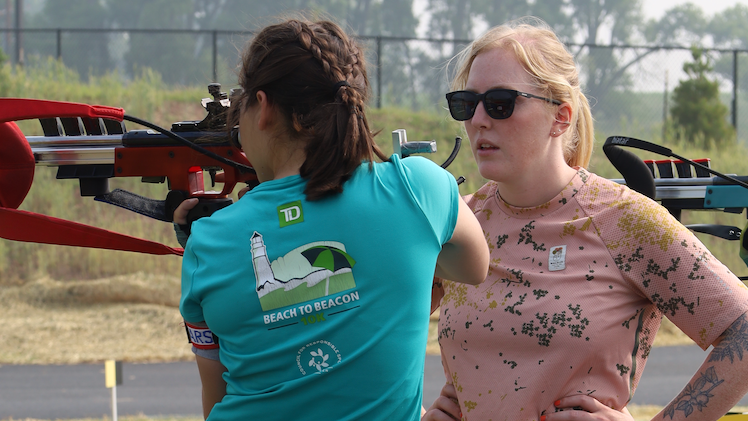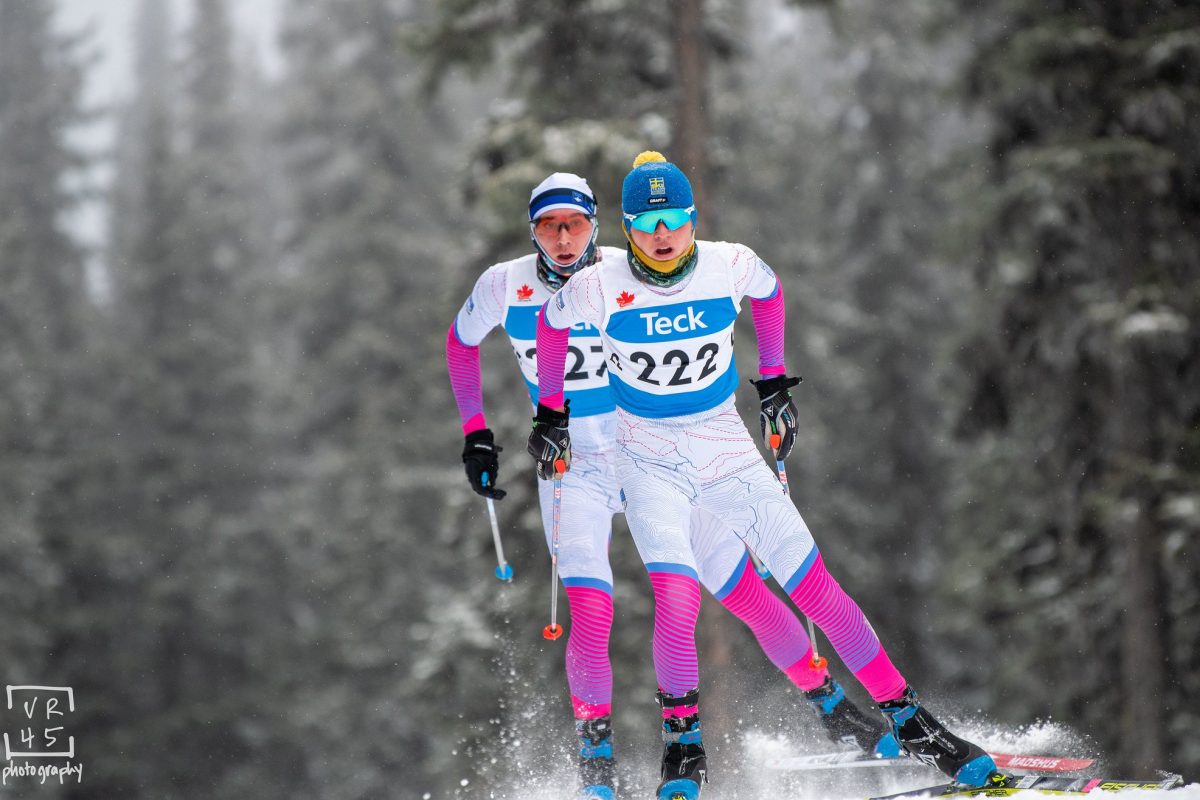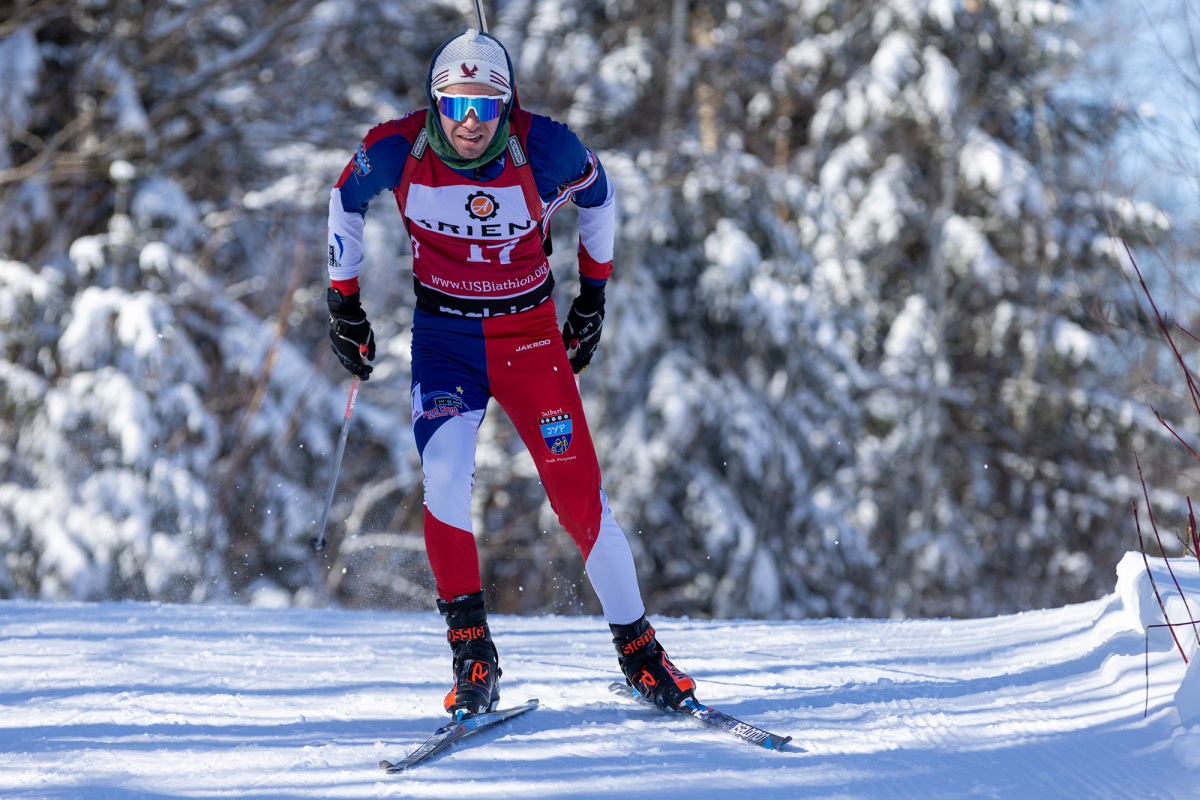
RUHPOLDING, Germany – When Susan Dunklee was leading Wednesday’s World Championship 15 k individual race, fans, coaches, and journalists alike were scratching their heads. Who is this Susan Dunklee?
The American World Cup rookie is not unknown on the circuit – coming in to these races she had scored World Cup points eight times and finished in the top 20 in a sprint in Antholz, Itlay – but she wasn’t too familiar, either. While the U.S. has seen four different men place in the top ten this season, the women’s team hasn’t had even one top-ten performance in years.
But the sight of an American at the women’s medal ceremony – Dunklee ended up fifth on the day, the best World Championships result ever by a U.S. woman – would not be nearly as surpring to European audiences as the story of how she got there, which highlights the unique challenges faced by the biathlon in North America. The sport has never had a huge base of athletes to draw on; like cross country skiing, it suffers from a lack of tradition and culture in the U.S. and Canada. Except that for biathlon, it’s even tougher to draw top talent.
In the early 2000’s, the U.S. Biathlon Association (USBA) started a development team to try to fight these issues, with the idea that the program could take talented skiers, turn them into biathletes, and supplement their base of junior biathletes, not all of whom made it through to the senior ranks. It provided a high-level introduction to the sport for many athletes over the last decade, although funding necessitated ending the program after the 2010 season.

Dunklee, who hadn’t shot a rifle until she decided to pick up biathlon in 2008, when she finished at Dartmouth College, has now become the most successful of that cohort of athletes. But plenty of others have represented the U.S. in international competition as well. Sara Studebaker, who had four World Cup top-twenties last year and one this year, had done biathlon as a junior, but not as her main focus; after graduating from Dartmouth in 2007, she joined the development team and was soon promoted to the national team proper. Dunklee and Studebaker were both NCAA All-Americans and members of their school’s team which won the NCAA Championship in 2007.
Studebaker’s boyfriend Zach Hall also joined the program straight from Dartmouth, and started two World Cup races before retiring at the end of last season. Bill Bowler, a former Northern Michigan University skier, has represented the U.S. in Continental Cup competitions and is now a member of the national “B” team. University of Vermont racer Katrina Howe also joined the program around the same time, and is now a full-time biathlete at the Maine Winter Sports Center.
None of these athletes picked up biathlon until they were in their early 20’s – which definitely can’t be said of the Europeans they are competing against. The broadcast of the men’s individual race here in Ruhpolding reportedly drew four million television viewers, and biathlon is the most popular winter sport for Europeans to watch. With such publicity, national team programs are robust and function like clockwork.
Dunklee and Studebaker’s competition consists of women who have been training for the sport since their mid teens at least, and in many cases even younger. Tora Berger, who won the individual race, has been a member of Norway’s national team since 2002. Second-place Marie Laure Brunet picked up biathlon at age 17. Bronze medalist Helena Ekholm, who was seven seconds ahead of Dunklee after four shooting stages and 15 k, is in her seventh year of senior Championship racing for Sweden. Dunklee is in her first.
USBA High Performance Director Bernd Eisenbichler, a former German skier who is well-acquainted with European development systems, said that it was highly unusual, although not unheard of, for an athlete to be top-ten at a Championship event after only four years of shooting training.
“The only one I can remember is Kati Wilhelm maybe, in two years she was World Champion in Pokljuka in 2001, but other than that, no,” Eisenbichler told FasterSkier.
Wilhelm represented Germany as a cross-country skier at the 1998 Olympics, then picked up biathlon in 1999 and went on to win 21 individual World Cup races.

Wilhelm is probably a once-in-a-lifetime athlete, and Eisenbichler said that even though a successful transition between sports like the German’s is possible, it shouldn’t diminish Dunklee’s accomplishment.
“It was impressive,” he said.
(Dunklee is also an unusual athlete within the centralized, Olympic Training Center-based U.S. system, in that she spends about half her training time as a member of the Craftsbury Green Racing Project in Vermont. She travels to training camps in Lake Placid and elsewhere with the national team, and follows their training plan rather than working closely with Craftsbury coach Pepa Miloucheva, but the arrangement – while ultimately rewarding for everyone – has been hard work for both athlete and coaches.)
Did the U.S. team feel like her result made all the funding and work they had poured into a group of non-biathletes worthwhile?
“It is definitely a validation,” U.S. Biathlon Association President Max Cobb said in a trailside interview. “This is just thrilling, for her to do this today. It’s definitely a clear indicator of some huge potential.”
Eisenbichler thought that Dunklee’s anything-is-possible saga would boost morale on his team, which was slightly deflated after the men’s pursuit and individual races.
“I think that was missing a little, a little surprise performance for everyone,” he said. “We know that we can do it, and Tim [Burke] showed already that he can do it – tenth place was a super result. And now Susan with this sensational result, it will for sure have influence for the whole team and it will kick something positive into the weekend, where we will still have some really exciting racing going on.”
Additional commentary from the U.S. coaches can be seen in the video interviews below.
Disclaimer: The author was a teammate of Dunklee’s and Studebaker’s at Dartmouth College, and also a member of the Craftsbury Green Racing Project, but objectivity is always the priority for FasterSkier.



